Scientists are discovering why our frillneck lizard has one of the animal world’s most dramatic displays.

IT’S MOSTLY BLUFF and bluster, but a frillneck lizard’s display when it’s disturbed can still be surprisingly intim-idating. Open-mouthed, with its dinner-plate-sized, bright-red frill erected around its neck like a scaly umbrella, a ‘frilly’ lunges and hisses at biologist Christian Alessandro Perez-Martinez at Fogg Dam Conservation Reserve, on the Adelaide and Mary river floodplains in the Northern Territory.
Between lunges, it sways back and forth and makes loud cracking sounds by whipping its tail. Eventually, it turns and scampers off on its hind limbs to scramble up the nearest tree. “This dramatic performance aims to deter predators, or at least momentarily overwhelm them, so that the frillies can escape,” Christian says. “Even though frillies aren’t dangerous to humans, their behaviour definitely makes you think twice.”
Christian is a visiting researcher in The Lizard Lab at Macquarie University, Sydney, where he’s been working in collaboration with Associate Professor Martin Whiting. He’s been carrying out some of the first field research on these enigmatic lizards, which are common across the tropical savannah and woodlands of northern Australia and New Guinea. Although an adult male here is rarely bigger than 75cm in length and 750g in weight, collecting the data Christian needed on the lizards’ colour and anatomy was more difficult than he expected it to be.
“The frillies would constantly lock eyes with me and frill up, and on several occasions managed to get a good tail-whip to my face,” he says.
This story is from the July - August 2019 edition of Australian Geographic Magazine.
Start your 7-day Magzter GOLD free trial to access thousands of curated premium stories, and 9,000+ magazines and newspapers.
Already a subscriber ? Sign In
This story is from the July - August 2019 edition of Australian Geographic Magazine.
Start your 7-day Magzter GOLD free trial to access thousands of curated premium stories, and 9,000+ magazines and newspapers.
Already a subscriber? Sign In
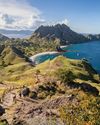
SULAWESI SENSATIONS
There are worlds within worlds and marvels untold waiting to be experienced on Indonesia's remote islands.
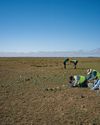
SEARCHING FOR AUSSIE DINOSAURS
Our understanding of where to find ancient life in Australia has been turned on its head by a new appreciation of the country's geology. Now the world is looking to our vast outback as the latest hotspot to locate fossils.
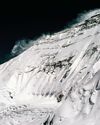
THE HARDEST NIGHT
The first Australian ascent of Mt Everest in 1984 is one of the great feats of mountaineering. Climbed by a small team semi-alpine style, with no bottled oxygen, via the Great (Norton) Couloir, it remains unrepeated 40 years later.
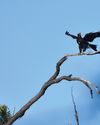
WEDGE-TAILED WONDER
The chance discovery of an eagle nest leads to an extended vigil observing normally hidden behaviours of one of nature's supreme winged marvels.
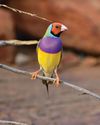
BURDENED BY BEAUTY
Northern Australia's Gouldian finch survives in huge numbers in cages around the world, but its wild population continues to struggle.
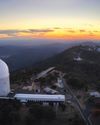
A TELESCOPE FOR A GOLDEN AGE
After a stellar 50 years as one of the country's major scientific assets, the AAT continues to play a major role in keeping Australian astronomy on the world stage.
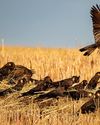
COCKY WHISPERING AT COOMALLO CREEK
This patch of remnant bush on the edge of the West Australian wheatbelt is a place loved by one of Australia's rarest bird species and the man who has studied the site for more than 50 years.

A PIONEERING PAIR
Louisa Atkinson and her mother, Charlotte, were among Australia's earliest authors, and pioneers in women's rights.

THE LONGEST WALK
Lucy Barnard is walking from Argentina to Alaska -the length of the Americas - on an extraordinary journey of endurance and adventure.
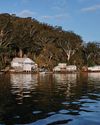
SECLUDED, BUT NOT ALONE
In an era of heightened social isolation, where many of us lead lonely lives, Dangar Island offers the chance to be part of a supportive, connected community.